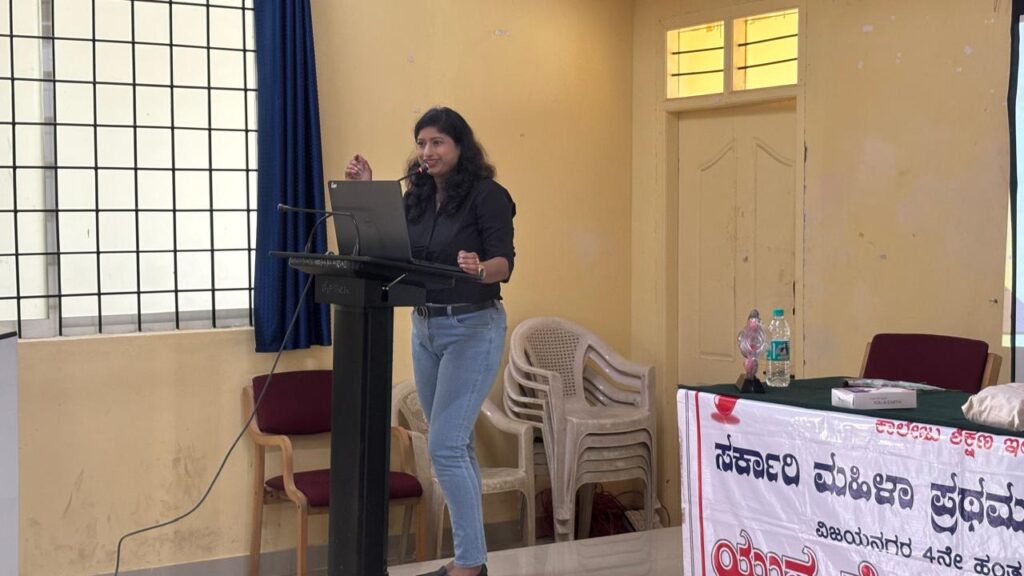
Periods have long been surrounded by stigma, misinformation, and even silence, but thanks to the growing work of menstrual educators, this narrative is changing for the better. Menstrual educators play a pivotal role in promoting awareness about menstruation, advocating for better menstrual health, and breaking down centuries-old taboos. Their efforts not only support menstruators but also contribute to creating a society that is more informed, inclusive, and empathetic about menstruation.
In this blog, we’ll explore the responsibilities of menstrual educators, the importance of period awareness, and how menstrual education is driving change. Additionally, we’ll discuss how menstrual education can combat period poverty, break stigmas, and empower individuals to manage their menstrual health with dignity and confidence.
What is a Menstrual Educator?
A menstrual educator is a professional who focuses on providing accurate, inclusive education about menstruation. They educate diverse groups—including students, community members, and healthcare workers—about menstrual health, hygiene, and overall reproductive wellness. Menstrual educators aim to foster understanding and dispel common myths and misconceptions about periods.
This role can be multifaceted, including working within schools to teach young people about menstrual health, collaborating with nonprofits to advocate for menstrual equity, or even using digital platforms to reach broader audiences. Menstrual educators not only aim to educate but also strive to create a more supportive culture where menstruation is no longer stigmatized or misunderstood.
Why is Period Awareness Important?
Period awareness is crucial because menstruation is a natural and essential biological process that affects millions of people around the world. Yet, it continues to be an area fraught with ignorance, shame, and misconceptions. By increasing period awareness, society can better support those who menstruate, ensuring that they have access to the information, products, and care needed for healthy menstruation.
Lack of menstrual knowledge can lead to a host of issues:
- Health concerns: Without proper education, many people are unaware of how to manage their periods safely and hygienically. This can result in infections, discomfort, and long-term health problems.
- Stigma and shame: Periods are often shrouded in secrecy, and this stigma can negatively affect mental health, causing menstruators to feel embarrassed or isolated. This stigma also discourages open conversations, leaving menstruators ill-prepared.
- Missed opportunities: Menstruators without access to proper menstrual products or education may miss school or work due to period-related issues, limiting their educational and economic opportunities.
By promoting menstrual education, we can challenge these problems and work toward a world where menstruators feel empowered rather than marginalized.
The Role of a Menstrual Educator in Schools
Schools are often the first place where individuals learn about their bodies, making them critical sites for menstrual education. A menstrual educator in a school setting plays a fundamental role in shaping the understanding of menstruation for young people.
In many parts of the world, menstruators begin their periods without any prior knowledge about what to expect. This lack of information can lead to fear, embarrassment, and misconceptions that can last well into adulthood. By offering comprehensive, science-based menstrual education, menstrual educators can help students understand what menstruation is, why it happens, and how to manage it effectively.
Key responsibilities of menstrual educators in schools include:
- Teaching the biology of menstruation: Menstrual educators break down the biological processes involved in menstruation, helping students understand the hormonal changes that trigger a menstrual cycle.
- Normalizing conversations about periods: Menstrual educators help students feel more comfortable discussing periods, which is crucial for creating an inclusive school environment where menstruators can seek help when needed.
- Promoting menstrual hygiene: Students learn how to use menstrual products (pads, tampons, menstrual cups) properly, as well as the importance of maintaining hygiene during menstruation.
- Creating inclusive learning environments: Menstrual educators ensure that both menstruators and non-menstruators (such as boys and non-binary individuals) receive education about menstruation, fostering empathy and reducing stigma.
Schools that implement thorough menstrual education programs report higher levels of comfort and confidence among students when it comes to discussing and managing their periods.
Addressing Period Poverty through Menstrual Education
One of the most pressing issues menstrual educators address is period poverty—the lack of access to menstrual products, education, and sanitation. Period poverty affects millions of menstruators worldwide, particularly in low-income regions or marginalized communities. Without proper products or information, menstruators may resort to unsafe practices or miss out on important activities like school or work.
Menstrual educators combat period poverty in several ways:
- Education on low-cost menstrual alternatives: Educators often introduce menstruators to affordable, sustainable menstrual products, such as reusable cloth pads or menstrual cups. These alternatives can help reduce the financial burden of purchasing disposable products every month.
- Advocating for free menstrual products in public spaces: Menstrual educators work with organizations, governments, and schools to provide free menstrual products in restrooms. Many countries are adopting policies that make menstrual products available in schools, shelters, and public bathrooms, a critical step toward achieving menstrual equity.
- Partnering with NGOs and community groups: Many menstrual educators collaborate with nonprofits that distribute menstrual products to people in need. They also run workshops to teach menstruators how to use these products correctly.
Period poverty is a widespread issue that can lead to missed educational and professional opportunities, but menstrual educators play a vital role in helping menstruators gain access to the resources and knowledge they need to manage their health with dignity.
Tackling Menstrual Myths and Taboos
Many cultures have long-standing myths and taboos surrounding menstruation. From the belief that menstruators are “unclean” during their periods to restrictions on participating in religious or social activities, these misconceptions can severely impact the lives of those who menstruate. In some cases, these beliefs can even lead to dangerous practices, such as menstruators being banished from their homes or communities during their periods, which puts their safety at risk.
Menstrual educators take a proactive approach in dismantling these myths and promoting science-based information. They challenge long-standing cultural stigmas and provide factual, respectful explanations about menstruation. Some ways they do this include:
- Public awareness campaigns: Menstrual educators often lead campaigns aimed at increasing public understanding of menstrual health. These campaigns may focus on combating harmful cultural taboos, promoting the health benefits of proper menstrual hygiene, and encouraging open conversations about periods.
- Workshops and seminars: Menstrual educators host events where participants can ask questions and learn about menstruation in a judgment-free environment. These workshops are particularly helpful in communities where myths and taboos are deeply ingrained.
- Utilizing digital platforms: The rise of social media has given menstrual educators a powerful tool for dispelling myths. Platforms like Instagram, YouTube, and TikTok are popular channels where educators post engaging, accessible content that educates their audience about menstrual health.
Breaking the silence around menstruation and dispelling myths is key to creating a society where menstruators can manage their health confidently, free from shame or stigma.
Empowering Menstruators Through Comprehensive Education
Empowerment is at the core of a menstrual educator’s mission. By equipping menstruators with the knowledge they need to understand their bodies, menstrual educators help individuals feel more in control of their health and well-being.
One of the most effective tools that menstrual educators introduce is menstrual tracking. Teaching menstruators how to track their cycle allows them to understand their bodies better and anticipate changes in mood, energy, and physical well-being. This knowledge can also alert menstruators to irregularities in their cycle, such as unusually heavy periods or skipped periods, which may signal underlying health issues.
Comprehensive menstrual education empowers menstruators in several ways:
- Understanding the menstrual cycle: By educating people about the different phases of the menstrual cycle (e.g., menstruation, ovulation, luteal phase), menstrual educators help them recognize and interpret the changes their bodies go through each month.
- Managing menstrual symptoms: Menstrual educators often provide practical advice on managing common menstrual symptoms, such as cramps, fatigue, and bloating. They may suggest lifestyle changes, such as dietary adjustments or exercise, or provide guidance on when to seek medical advice.
- Promoting body positivity: Educators work to combat the negative body image often associated with menstruation by encouraging menstruators to appreciate and respect their bodies. This body-positive approach helps menstruators feel more comfortable with their periods and less ashamed of natural bodily functions.
By promoting self-awareness and self-care, menstrual educators enable menstruators to take control of their health and make informed decisions about their well-being.
Menstrual Education in the Digital Age
The digital age has transformed the way menstrual education is delivered, offering new avenues for reaching a broader audience. With the rise of social media and online learning platforms, menstrual educators are now able to engage with menstruators worldwide, providing education that is both accessible and inclusive.
The benefits of digital menstrual education include:
- Wider reach: Online platforms allow menstrual educators to reach individuals who may not have access to formal education in their local communities. This is particularly valuable in regions where menstrual education is still taboo or underfunded.
- Interactive learning: Digital platforms enable interactive learning through quizzes, webinars, and Q&A sessions, where individuals can engage with educators and ask questions in real time.
- Inclusivity: Online platforms provide a space where people of all genders can learn about menstruation. This is critical for fostering empathy and inclusivity and breaking the association between menstruation and femininity.
Through blogs, videos, and social media content, menstrual educators are spreading period awareness, one click at a time.
The Future of Menstrual Education
Looking ahead, the future of menstrual education is bright. As more people recognize the importance of period awareness, menstrual educators will continue to play a central role in shaping societal attitudes toward menstruation. Advocacy for menstrual equity is gaining momentum, with governments and organizations pushing for policy changes that ensure free access to menstrual products and comprehensive menstrual education.
Menstrual educators are also working to ensure that menstrual education is inclusive and addresses the needs of all menstruators, regardless of gender identity or socioeconomic status. This inclusivity will be key to dismantling the stigma that surrounds menstruation and ensuring that everyone can manage their periods with dignity and confidence.
Conclusion
Menstrual educators are vital advocates for promoting period awareness and menstrual health. Through education, outreach, and advocacy, they are breaking down stigmas, empowering menstruators, and driving the global movement toward menstrual equity. As we continue to advance in this area, menstrual educators will be at the forefront of creating a society where periods are no longer shrouded in shame but are understood, respected, and embraced as a natural part of life.
FAQs
What does a menstrual educator do?
A menstrual educator provides accurate education about menstruation and menstrual health, working to dispel myths and promote healthy practices.
Why is menstrual education important?
Menstrual education is crucial for breaking down stigma, promoting health and hygiene, and empowering menstruators to manage their periods confidently.
How do menstrual educators help reduce period stigma?
By providing factual information and promoting open discussions about menstruation, menstrual educators help normalize periods and challenge harmful stereotypes.
What role do menstrual educators play in schools?
In schools, menstrual educators teach students about menstruation, ensuring that both menstruators and non-menstruators understand the biology and importance of menstrual health.
How do menstrual educators address period poverty?
They work with communities and organizations to ensure that all menstruators have access to affordable or free menstrual products and the education needed to manage their health.What is menstrual equity?
Menstrual equity refers to the goal of ensuring that all people have access to the menstrual products, education, and resources they need to manage their periods with dignity.

